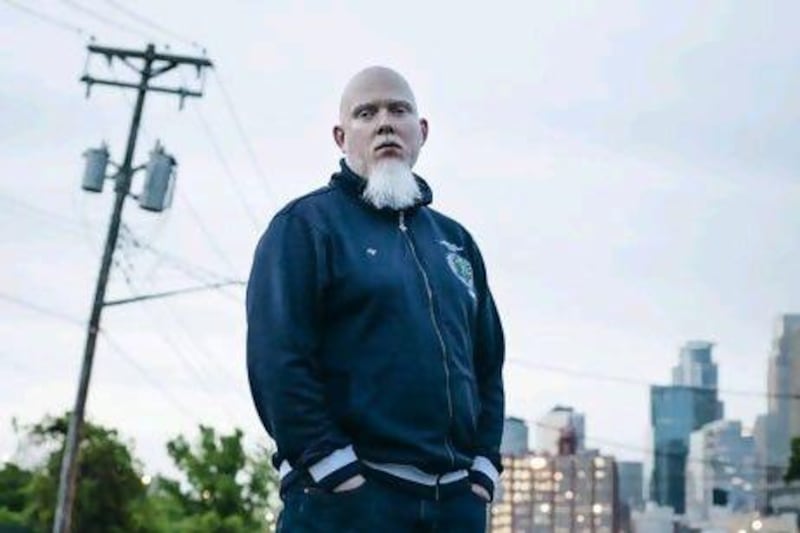Ali Newman is indebted to a diverse trio for inspiring his oratory career: Public Enemy's fearsome frontman, Chuck D, the great Muslim leader, Warith Deen Mohammed, and his grandmother.
"I had my first show when I was 8 - in church at my grandmother's funeral," says Newman, who is better known as Brother Ali. "She was always supportive of hip-hop at a time when people didn't know much about it. Anyway, they left a microphone on after her funeral service, so I went and did my thing."
Twenty-seven years later, Ali is a unique presence on a US rap scene that's outwardly preoccupied with wealth and partying. His latest album, Mourning in America and Dreaming in Colour, is a concept affair with two distinct sides - scathingly honest about the US's problems, it then makes an ambitious about-turn, offering succour and solutions.
A child of the American heartlands, Ali is now settled in the Midwest state of Minnesota and is well versed in overcoming adversity. Legally blind, he was born with albinism, but found hope via hip-hop.
"It was a way of asserting myself as something other than an outcast, someone who people could celebrate. It was extremely important to me," he says.
"I could walk into a physical space and perform for whoever those people were and I would instantly become somebody. Whether they liked me or didn't like me - whatever. People weren't just laughing at me for being albino; my being albino was just part of the fact that I was a rapper. And that's still the case now."
He admits to receiving "almost no commercial radio play" in the US, but dedicated touring has built him a burgeoning audience at home and abroad. Lyrically and musically, Ali eschews the hip-hop zeitgeist and harks back to the genre's "golden age" of the late 1980s, when sample-based party tracks gave way to more conscientious - but controversial - material. It was then that he "decided to become a rapper".
"The lyrics became more complex and serious," he says. "That's when it started to affect not just the way that I had fun, but the way I wanted to think and the kind of person I wanted to be."
At a radio broadcast in 2008, he met one of those 1980s heroes and forged a significant bond. The legendary MC and campaigner, Chuck D, has become "an incredible resource, friend and mentor", says Ali, grateful for regular advice and several profile-boosting collaborations. The support has been invaluable because Ali's increasingly political ethos has alienated sections of his established audience, and made radio airplay even less likely.
Being ignored by the establishment is a regular theme, both in his work and wider beliefs. Having converted to Islam in his teens, he laments how American Muslims are now portrayed and perceived. "Not in the hip-hop community, which has always had a good relationship with Islam, but in the broader community," he explains.
Ali learnt about Malcolm X and Islam as a child, was inspired by rap lyrics, and then joined a group taught by the aforementioned WD Mohammed. The son of the contentious Nation of Islam leader Elijah Mohammed, Warith Deen preached a more measured message. "He was the greatest teacher of American-born Muslims," Ali says. "A really progressive, inclusive mainstream teacher. And he was almost never on TV."
Politically, Ali also practises what he preaches. In June this year, he was arrested as part of a protest by the Occupy Homes movement, which urges banks to negotiate with people who default on their mortgage payments. "We stand with the family," he says. "They had to arrest all of us to take them out of the home, and 37 of us were arrested at that particular house."
Punishment is pending, but Ali hopes it will not prevent him from spreading his message beyond the US. Europe and Australia are already regular destinations, and having made his first pilgrimage to Mecca in 2010, he is keen to revisit the Middle East.
"Nothing in the Middle East, yet," he says, pondering past gigs and possibilities. "I want to perform a lot more in Asia."
Mourning in America and Dreaming in Colour is out now. For details, visit www.brotherali.com





